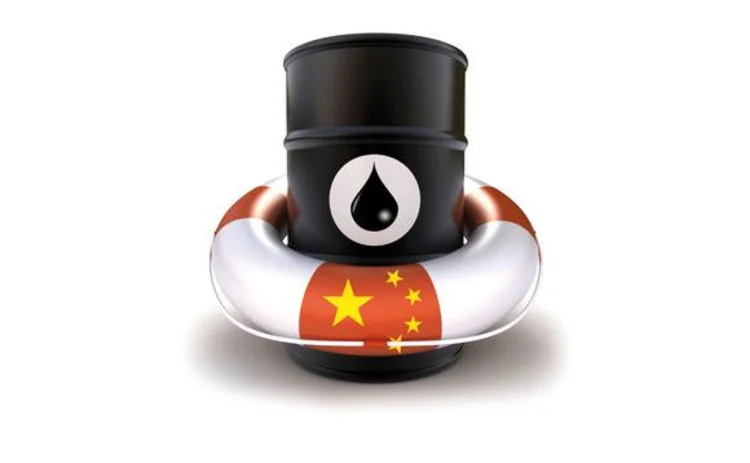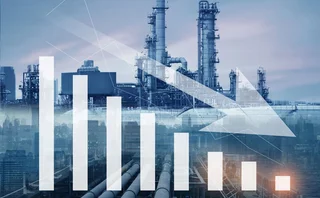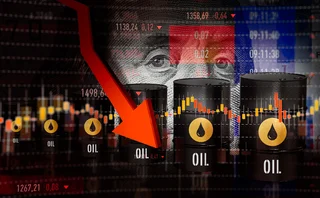Nigerian official says oil exports not at risk

Diezani Allison-Madueke, Nigeria's Oil official, has hit out at fears that Nigeria's oil exports will tighten, following reports that the country's state-owned oil firm, the Nigerian National Petroleum Company (NNPC), risks insolvency because it is unable to pay its $5 billion worth of debts.
"I think that all the creditors of the operators in Nigeria are fully aware of the timelines for payment and exactly what that entails," says Allison-Madueke. "I can assure you that if there was any question about [the risk of insolvency] that we would have various liens on our products on the high seas at this time. As of June 30 this year, the assets on NNPC far outstrip the liabilities and over the tune of $1 billion. So right now there is no question of insolvency."
Two weeks ago, Nigeria's Junior Finance Minister Remi Babalola was reported by the the BBC to have said that the NNPC had asked for help to cover its debts and fund its operations.
"NNPC is insolvent as current liabilities exceeded current assets by 754 billion naira ($5 billion; £3.3 billion)," Mr Babalola was reported to have told a government finance meeting according to the UK news station. "NNPC owed about $3 billion to Nigeria's Federation Account, which distributes oil money to varying levels of the country's government."
Meanwhile, Nigeria, one of the world's largest oil exporters is continuing to seek new oil reserves by exploring and producing oil through offshore drilling. Allison-Madueke said that despite the tense climate surrounding offshore drilling after BP's Gulf of Mexico oil spill, this method of oil exploration and production will not put oil supplies at risk.
"I wouldn't say there's more risk," says Allison-Madueke. "I think in the business of exploration and production, the concern about oil spills is an occupational hazard. Whether it's offshore, deep offshore or onshore that is a risk we constantly try to mitigate. It's not more of a risk, but we hope that we have the essential processes and procedures in place to deal with [this situation] should it occur."
The Nigerian government is aiming for an oil production capacity target of 4 million barrels per day (b/d) by the end of 2010. However, this is more than double recent output. During 2009, productive capacity that was offline as a result of attacks on the oil infrastructure averaged between 700,000 and 800,000 b/d, according to BNP Paribas' Oil and Natural Gas Macro Roadmap for 2010 report. By the end of 2009, production levels rose back up to previous years' levels, reaching around 2 million b/d, says BNP Paribas.
Nigerian crude production fluctuates from year to year. The US Energy Information Administration (EIA) has yet to confirm the entire full 2009 year figures, but it says Nigerian crude oil production fell to 1.82 million barrels per day from 1.94 million b/d in 2008. This does not include the back-end figures BNP Paribas mentions.
In 2008, monthly oil production ranged between 1.8 million and 2.1 million b/d. If current shut-in capacity were to be back online, the EIA estimates Nigerian oil production could have reached 2.7 million b/d in 2008. Full-year 2009 statistics are still being calculated.
More on Oil & refined products
Energy Risk reaction: Venezuela and oil sanctions
Energy Risk talks to Rob McLeod at Hartree Partners about the energy risk implications of the US’s control of Venezuelan oil
Energy Risk Europe Leaders’ Network: geopolitical risk
Energy Risk’s European Leaders’ Network had its first meeting in November to discuss the risks posed to energy firms by recent geopolitical developments
US shutdown leaves commodity traders without key data
Commodity traders are ‘flying blind’ without Commitment of Traders reports
Energy Risk at 30: Learning from the past
Energy Risk looks back at the seminal events and developments that have shaped today’s energy markets
Why Iran tensions failed to rattle markets
Despite initial fears, traders say risks were signposted and investors had deleveraged after April
Oil and products house of the year: Macquarie Group
Energy Risk Awards: Bank pioneers innovative deals in illiquid markets, taking on esoteric risk
Podcast: should negative oil prices be allowed?
Did negative oil prices signify the market was operating effectively, or that something was wrong?
Podcast: the future of retail investment in oil
Will negative prices and big losses curb retail investors’ appetite for oil futures over the longer term?







